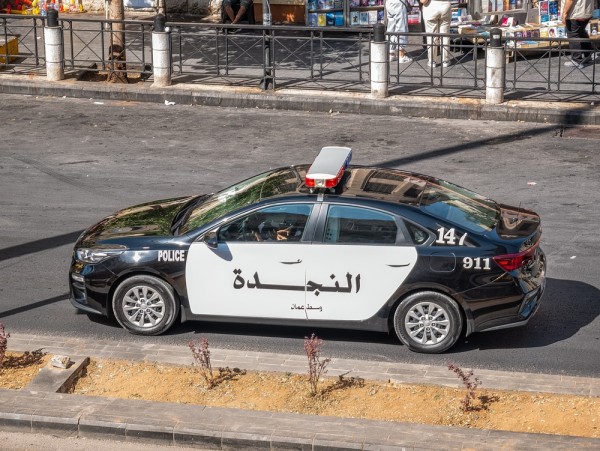His Excellency Abd ar-Rauf al-Rawabdeh
Prime Minister of Jordan
Office of the Prime Minister
Amman
Jordan
9 June 2000
Your Excellency,
Over 100 days have now passed since the International Press Institute’s conference on “Freedom of Expression and the Media in Jordan” and, as promised at the meeting, I am taking this opportunity to remind you of the commitment made by King Abdullah II to the cause of press freedom in Jordan.
At the conference on 5 February, a joint resolution was passed setting out a number of changes to the Jordanian legislation and media landscape (please see attached). These proposals received broad support from all participating organisations, including those members of the Arab media present. I now intend to examine the current state of the Jordanian media in the light of the resolutions passed at the conference.
In the belief of IPI, there is much to commend in Jordan’s approach to press freedom and freedom of expression. Jordan is one of the more liberal countries in a region that has chosen to make censorship a dominating feature of everyday life. The succession of the King has brought about a renewed energy and enthusiasm for enhancing press freedoms and amending provisions that hinder the development of a free press.
Indeed, the words expressed by the King and the Minister of Information, Salih Qallab, suggested a genuine desire to bring about the necessary changes in legislation. Furthermore, the idea of creating a free media zone within Jordan, as a haven for the free press in the region, appeared to be in recognition of how important the role of the media is in any democratic society.
However, the hope expressed by IPI that the drive and determination, expressed by the King and Mr. Qallab, would lead to a progressive media landscape in Jordan has not been borne out. Moreover, his majesty’s declaration that press freedom “should be as high as the national flag” has not been acted upon.
Sadly, since the seminar, the freedom of expression flag remains at half-mast. Legislation still remains on the statute book that tarnishes the democratic reputation of Jordan. Although the 1998 Press and Publications Law, which sought to apply exorbitant fines for violations and increased capital requirements for newspapers, has been diluted, there is still an executive authority monitoring and controlling the press.
Under the existing legislation, all journalists must become members of the Jordan Press Association. Failure to join means that a journalist is unable to practice his profession in Jordan and there are powers of expulsion for breaches of the governing codes. In addition to the scores of journalists who may lose their livelihoods because they are not members, a number of journalists have been brought before the disciplinary committee of the association and expelled.
Regarding the electronic media, the broadcast media is a government-controlled medium. IPI strongly believes that state controlled broadcasting should be transformed into public service broadcasting, thus ensuring editorial independence. A similar problem is the fact that the government holds major shareholdings in the largest national daily newspapers. Elsewhere, the periodical press is struggling to survive and is forced to operate in a restrictive environment with the minimum of freedom to report on controversial issues and topics.
Jordan has also failed to invoke the necessary legal procedures needed to incorporate international treaties into its domestic legislation. In addition, existing domestic laws that restrict the content of what may be published have not been repealed. This legislation includes the Penal Code, the State Security Law, the Law for Protecting State Secrets and Documents and the Contempt of Court Law. Apart from these laws, other legislation and practices allows for pre-trial detention for the act of publishing and the non-accreditation of foreign journalists.
Other concerns that were addressed at the IPI conference in February have also not been dealt with. These include: the government control of Jordanian television and radio, amendments to the Jordanian Television Law, the establishment and licensing of commercial and community broadcasters, the need for a freedom of information law, and the government’s divestiture of all shareholdings in the media.
IPI regards changes to the above legislation and the media in general, as fundamental to restoring Jordan’s credibility as a liberal country in an “intolerant” region. Such changes will bring dramatic benefits, including a free and open society that has the ability to withstand criticism from a media that is independent and no longer afraid of crippling sanctions. This will also have the additional benefit of promoting trust and confidence that are the necessary elements for acquiring international economic investments.
To further these aims, We urge you to bring about the promised changes to legislation and to reform the media. We would also remind you of the statement, made at the time of the conference, by the Minister of Information, who said: “the ceiling of freedom of expression would be the skies”. In order to achieve this, IPI is prepared to work with your government in order to draft legislation that conforms to international treaties. Through our own organisation, and in co-operation with other press freedom organisations, we have a great deal of experience in working to overhaul legislation on press freedom.
In the event that parliamentary initiatives are already being developed, we would be grateful if you could provide us with details of these reform plans.
It is now time to turn words and phrases expressing good intentions into deeds.
We thank you for your attention.
Johann P. Fritz
Director
Enclosure: Jordanian Joint Resolution, signed in Amman, Jordan, 5 February 2000


